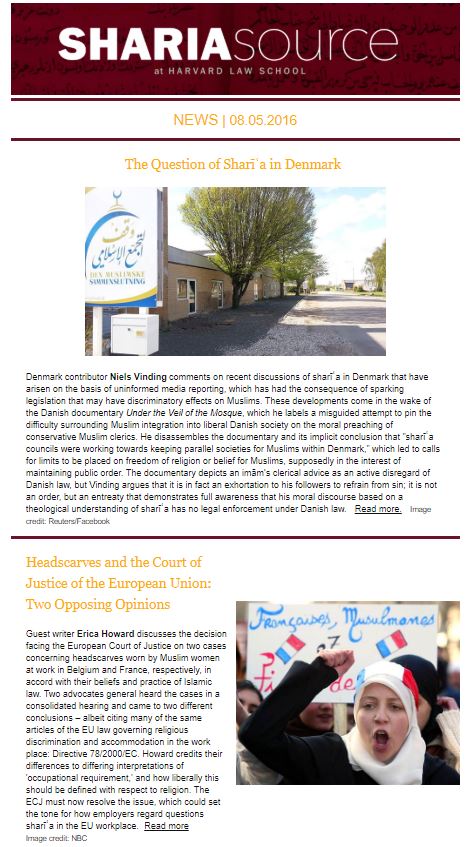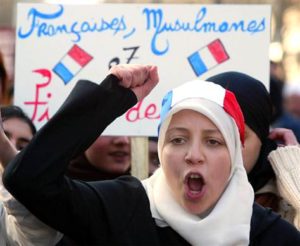
 The Question of Sharīʿa in Denmark Denmark contributor Niels Vinding comments on recent discussions of sharīʿa in Denmark that have arisen on the basis of uninformed media reporting, which has had the consequence of sparking legislation that may have discriminatory effects on Muslims. These developments come in the wake of the Danish documentary Under the Veil of the Mosque, which he labels a misguided attempt to pin the difficulty surrounding Muslim integration into liberal Danish society on the moral preaching of conservative Muslim clerics. He disassembles the documentary and its implicit conclusion that “sharīʿa councils were working towards keeping parallel societies for Muslims within Denmark,” which led to calls for limits to be placed on freedom of religion or belief for Muslims, supposedly in the interest of maintaining public order. The documentary depicts an imām’s clerical advice as an active disregard of Danish law, but Vinding argues that it is in fact an exhortation to his followers to refrain from sin; it is not an order, but an entreaty that demonstrates full awareness that his moral discourse based on a theological understanding of sharīʿa has no legal enforcement under Danish law. Read more. Image credit: Reuters/Facebook
The Question of Sharīʿa in Denmark Denmark contributor Niels Vinding comments on recent discussions of sharīʿa in Denmark that have arisen on the basis of uninformed media reporting, which has had the consequence of sparking legislation that may have discriminatory effects on Muslims. These developments come in the wake of the Danish documentary Under the Veil of the Mosque, which he labels a misguided attempt to pin the difficulty surrounding Muslim integration into liberal Danish society on the moral preaching of conservative Muslim clerics. He disassembles the documentary and its implicit conclusion that “sharīʿa councils were working towards keeping parallel societies for Muslims within Denmark,” which led to calls for limits to be placed on freedom of religion or belief for Muslims, supposedly in the interest of maintaining public order. The documentary depicts an imām’s clerical advice as an active disregard of Danish law, but Vinding argues that it is in fact an exhortation to his followers to refrain from sin; it is not an order, but an entreaty that demonstrates full awareness that his moral discourse based on a theological understanding of sharīʿa has no legal enforcement under Danish law. Read more. Image credit: Reuters/Facebook
 Headscarves and the Court of Justice of the European Union: Two Opposing Opinions Guest writer Erica Howard discusses the decision facing the European Court of Justice on two cases concerning headscarves worn by Muslim women at work in Belgium and France, respectively, in accord with their beliefs and practice of Islamic law. Two advocates general heard the cases in a consolidated hearing and came to two different conclusions – albeit citing many of the same articles of the EU law governing religious discrimination and accommodation in the workplace: Directive 78/2000/EC. Howard credits their differences to differing interpretations of ‘occupational requirement,’ and how liberally this should be defined with respect to religion. The ECJ must now resolve the issue, which could set the tone for how employers regard questions sharīʿa in the EU workplace. Read more. Image credit: NBC
Headscarves and the Court of Justice of the European Union: Two Opposing Opinions Guest writer Erica Howard discusses the decision facing the European Court of Justice on two cases concerning headscarves worn by Muslim women at work in Belgium and France, respectively, in accord with their beliefs and practice of Islamic law. Two advocates general heard the cases in a consolidated hearing and came to two different conclusions – albeit citing many of the same articles of the EU law governing religious discrimination and accommodation in the workplace: Directive 78/2000/EC. Howard credits their differences to differing interpretations of ‘occupational requirement,’ and how liberally this should be defined with respect to religion. The ECJ must now resolve the issue, which could set the tone for how employers regard questions sharīʿa in the EU workplace. Read more. Image credit: NBC
See the full newsletter.

